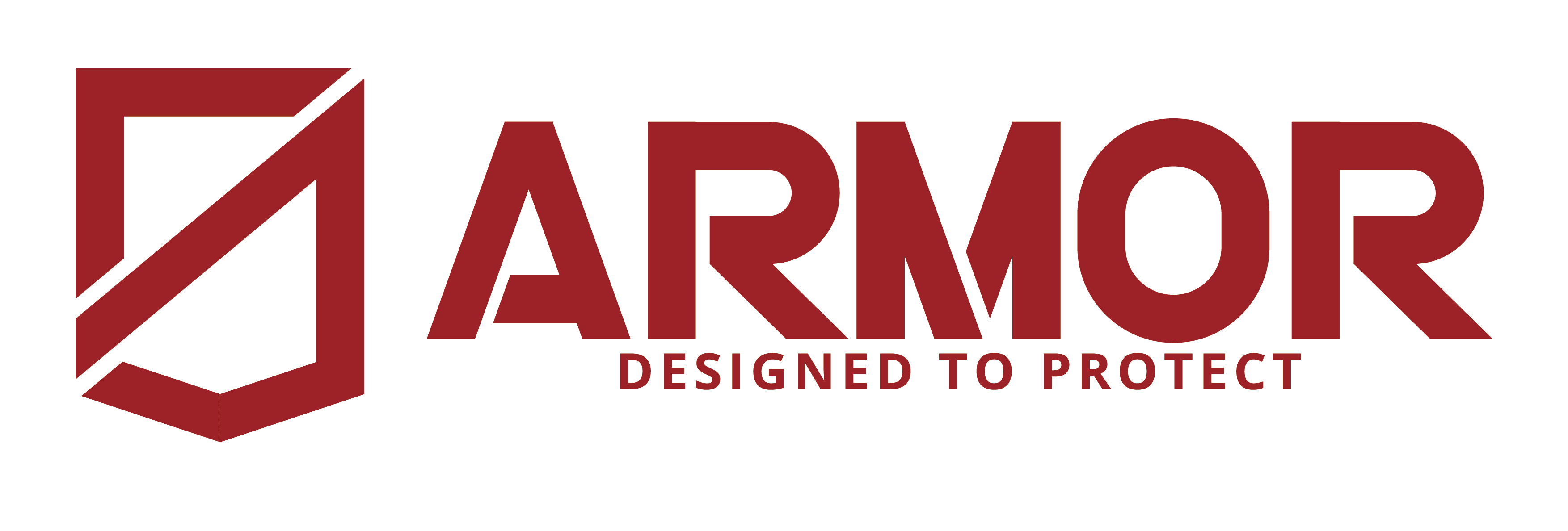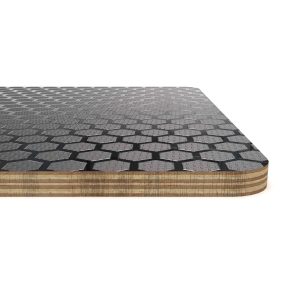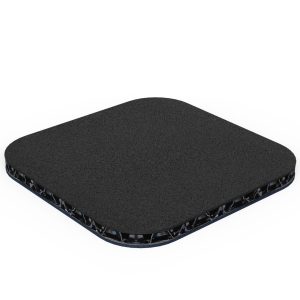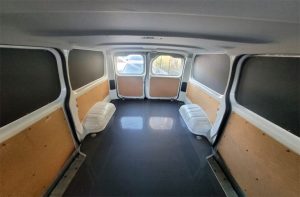Right Van Lining: How to Choose the for Heavy-Duty Use.
One of the most important considerations when selecting van lining for heavy-duty use is the type of material. For maximum durability, marine-grade plywood is a popular choice. This material is known for its strength, water resistance, and ability to withstand the wear and tear of daily use. Marine-grade birch plywood, in particular, is highly durable and can handle the weight and movement of heavy cargo without easily breaking down. Additionally, its smooth surface allows for easy cleaning, which is a key factor for businesses that need to maintain high hygiene standards or deal with dirt, mud, or spills in their vehicles.
Polypropylene plastic (PP) panels are another excellent choice for wall linings, particularly for heavy-duty use. These panels offer several advantages, including impact resistance, moisture resistance, and lightweight construction. For businesses that need to protect the van’s walls from constant bumps and abrasions, polypropylene is an ideal solution. Its non-porous surface prevents moisture buildup, which can lead to mold or mildew—issues that can quickly degrade lesser materials. PP panels are also easy to maintain, making them suitable for industries that prioritize cleanliness, such as food delivery services or rental companies with high vehicle turnover rates.
Another critical factor to consider when choosing van lining for heavy-duty use is the insulation properties. Vans that are used to transport temperature-sensitive goods require proper insulation to maintain consistent interior temperatures. High-quality van lining materials can help insulate the van, preventing temperature fluctuations that could damage products like food, pharmaceuticals, or electronics. For businesses involved in these sectors, van lining is not only about protection but also about creating a controlled environment within the vehicle. Insulation also offers noise reduction benefits, making the driving experience more comfortable by minimizing road noise—a valuable feature for drivers who spend long hours on the road.
Safety is another area where van lining plays a vital role. In heavy-duty applications, there is often a risk of injury from moving cargo or slipping on wet surfaces. Installing anti-slip flooring as part of your van lining solution can significantly reduce the risk of accidents. Non-slip surfaces ensure that cargo stays in place during transit, and they provide better grip for individuals loading and unloading the van. This is especially important for industries like construction or delivery services, where safety regulations are strict and workers’ well-being is a top priority. By investing in high-quality van lining that includes anti-slip flooring, businesses can create a safer working environment while reducing liability risks.
Cost-effectiveness is another reason why choosing the right van lining is crucial for heavy-duty use. While there may be a higher upfront cost associated with premium materials like marine-grade plywood or polypropylene, the long-term savings are significant. Cheaper materials may not hold up as well under the pressure of heavy use, leading to frequent repairs or replacements. High-quality van lining protects your investment by extending the lifespan of your vehicles, lowering maintenance costs, and minimizing downtime due to repairs. Additionally, vans that are well-maintained through proper lining tend to have higher resale values, which can provide a financial benefit when it’s time to upgrade your fleet.
Customization is another advantage of selecting the right van lining for heavy-duty use. Each business has unique requirements, and the right lining solution can be tailored to meet those needs. For example, delivery services might prioritize cargo security features like tie-down points, while rental companies might focus on durability and easy maintenance. Custom van lining solutions allow businesses to create the ideal environment for their specific operations, whether it’s for transporting goods, equipment, or passengers. Working with a specialized provider like Sydney Van Lining ensures that the van lining is not only durable but also suited to the particular demands of heavy-duty use.
In conclusion, selecting the right van lining for heavy-duty use involves considering factors like material durability, insulation, safety, and cost-effectiveness. Marine-grade plywood and polypropylene panels are excellent choices for businesses looking to protect their vehicles and ensure long-term performance. Safety features like non-slip flooring and the ability to customize the lining to specific needs further enhance the value of right van lining solutions. For businesses that rely on their vehicles for heavy-duty tasks, investing in high-quality van lining is a smart decision that will pay off in terms of durability, safety, and cost savings over time.



